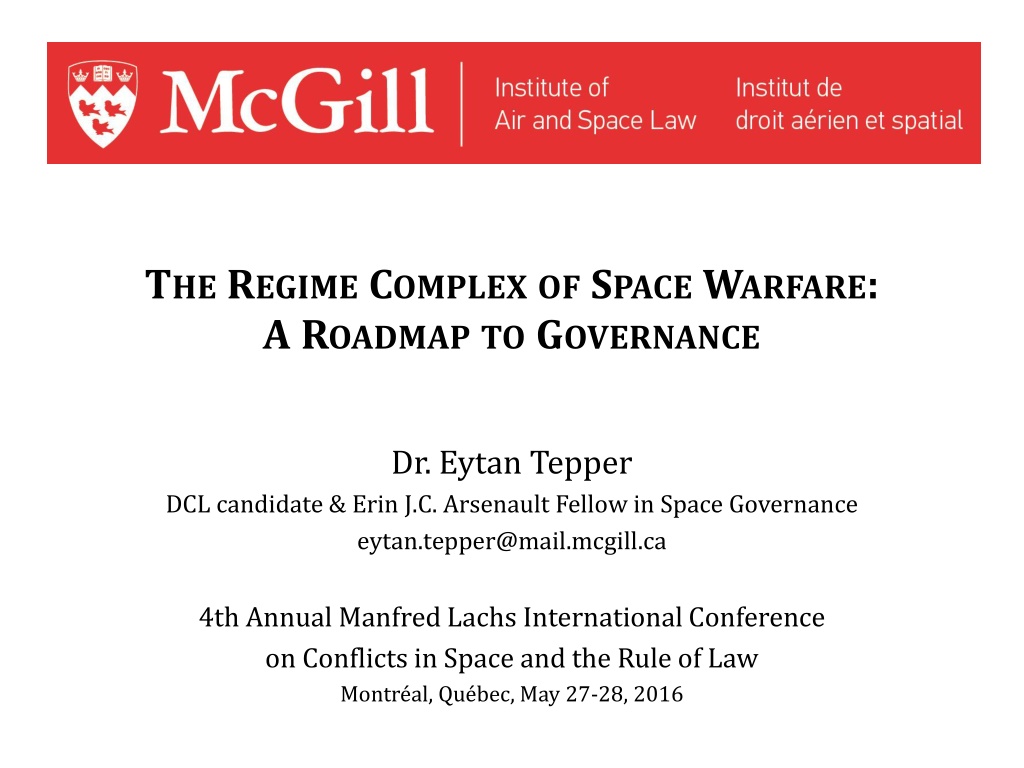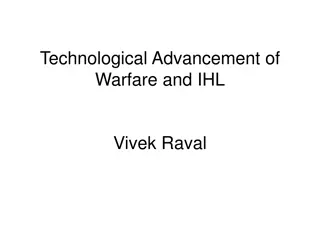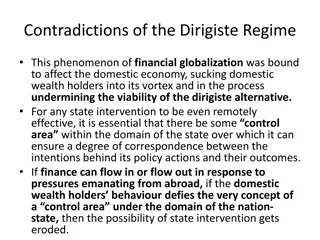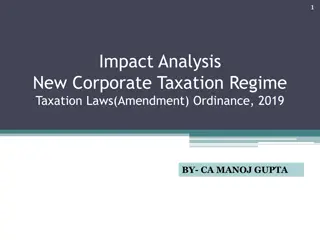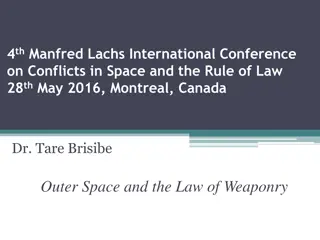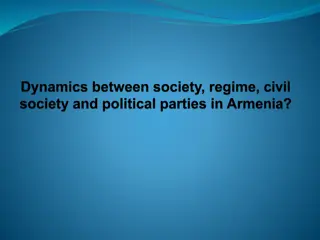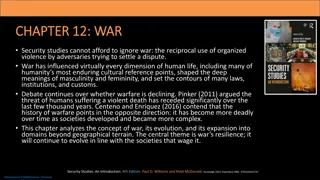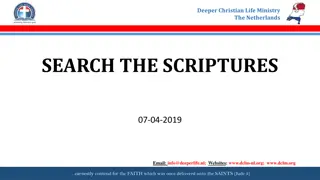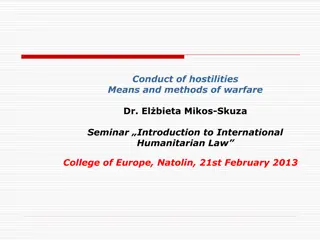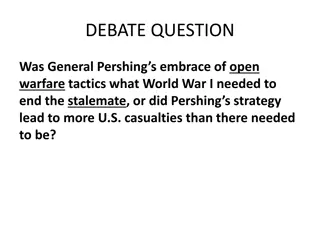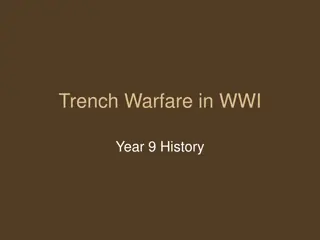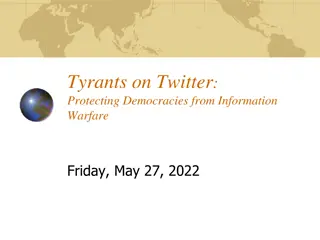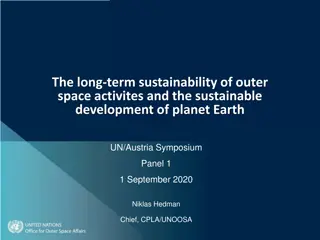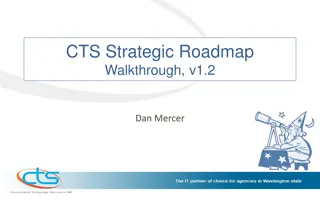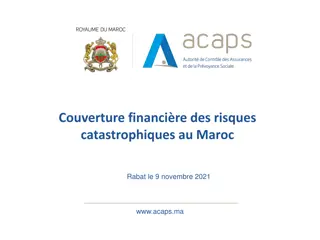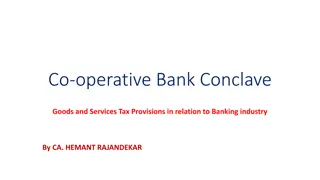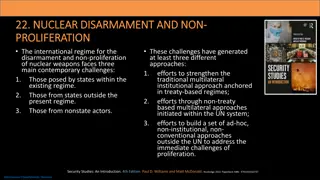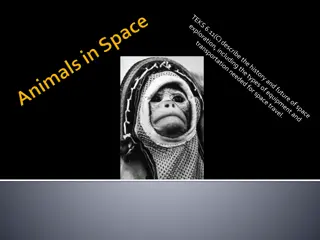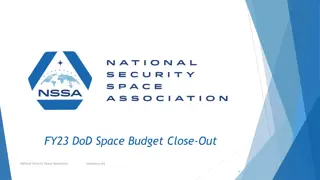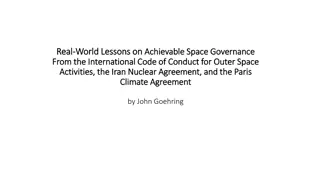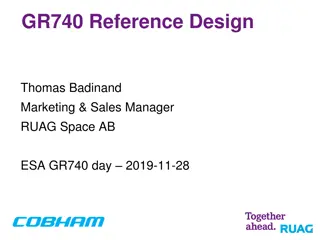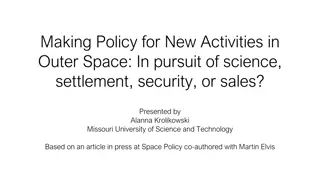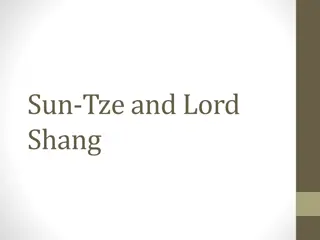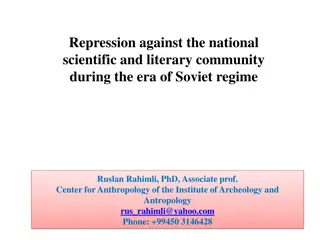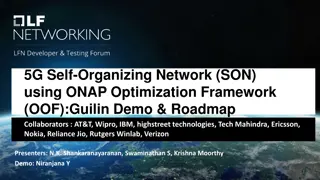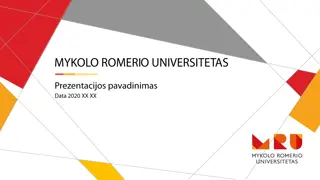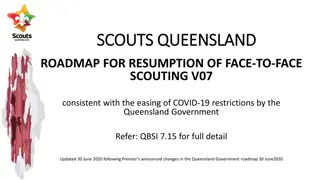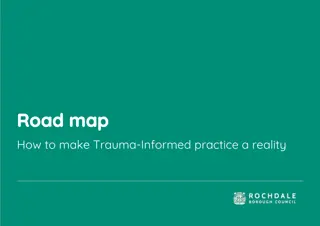The Regime Complex of Space Warfare: A Governance Roadmap
Delve into the intricate world of space warfare governance with Dr. Eytan Tepper and Erin J.C. Arsenault as they explore regime theory, regime complexes, and the existing framework of space warfare. Discover the types of space warfare, the theaters involved, and recommendations for future actions within this complex landscape.
Download Presentation

Please find below an Image/Link to download the presentation.
The content on the website is provided AS IS for your information and personal use only. It may not be sold, licensed, or shared on other websites without obtaining consent from the author. Download presentation by click this link. If you encounter any issues during the download, it is possible that the publisher has removed the file from their server.
E N D
Presentation Transcript
THE REGIME COMPLEX OF SPACE WARFARE: A ROADMAP TO GOVERNANCE Dr. Eytan Tepper DCL candidate & Erin J.C. Arsenault Fellow in Space Governance eytan.tepper@mail.mcgill.ca 4th Annual Manfred Lachs International Conference on Conflicts in Space and the Rule of Law Montr al, Qu bec, May 27-28, 2016
Outline 1. Introduction 3 types of space warfare, 5 theaters Regime Theory and Regime Complex a) Regimes and regime theory b) Regime complexes Mapping the existing regime complex of space warefare a) Conflicts in traditional theatres land, sea and air b) The theatre of outer space c) The theatre of cyberspace A roadmap and recommendations for future action a) Regime complexes are here to stay b) Working within the regime complex 4. Conclusion 1. 2. 3.
Introduction: Types of Space Warfare 3 types of space warfare: A. Space to space B. space earth (e.g. ASAT), from/to land or sea, crossing air space C. Cyber-attack targeting space assets 5 theaters: Land, sea, air, outer space, cyberspace
Regimes and Regime Theory Regime Theory = a branch of international relations (IR) Developed 1970s, evolved to study global governance Regime = a subset of principles, norms, rules, and decision-making procedures in a given area of international relations with a degree of hierarchical coherence among them; they may be implicit or explicit, descriptive or prescriptive or both; they may or may not be institutionalized to varying degrees (from a gentlemen s agreement through soft law to treaties). They create and reflect actors expectations. Example: the Missile Technology Control Regime (MTCR)
Regime Complexes Global governance = governance without government The decentralized structure is present also in specific issue-areas in international relations. Instead of a unified coherent regime there is a collection of regimes with varying in scope and norms. Example: climate change Nye: A regime complex is a loosely coupled set of regimes. On a spectrum of formal institutionalization, a regime complex is intermediate between a single legal instrument at one end and fragmented arrangements at the other The result: multiple normative frameworks and operative mechanisms (overlapping, competing, complementing)
Mapping the regime complex of space warfare Mapping: normative framework: principles, norms, rules, decision-making procedures (all norms ) Noting: operative mechanisms: organizations, fora, enforcement mechanisms Traditional theaters (land, sea, air): norms = jus ad bellum, jus in bello, UN Charter, Geneva & Hague conventions, specific treaties on nuclear and chemical weapons, etc. mechanisms = UN Security Council, ICJ, ICC, Nuclear Suppliers Group,
Mapping the regime complex of space warfare Theater of outer space: norms = OST Articles I & III States shall carry on activities in space , in accordance with international law extra-territorial application, applies to states and sub-state actors but not to theater itself. o Imports international law s norms + mechanisms 1963 treaty banning atmospheric nuclear weapon tests. UNGA resolutions & Sino-Russian draft treaty on prevention of weaponization. Mechanisms = COPUOS, ITU
Mapping the regime complex of space warfare Theater of cyberspace: norms = UN Group of Governmental Experts (GGE) report + recommendations of 2013 and 2015 applying international law + specific rules does intl. law legally ? In the regime sense yes, reflection of actors import norms + mechanisms. Mechanisms = GGE, ? Mapping shows - No unified, comprehensive and hierarchical regime. Instead multiple regimes, loosely connected regime complex What should we do?
A roadmap and recommendations for future action First step is always to recognize the problem Regime complexes are here to stay The reasons for regime complexes in international relations in general, and space warfare in particular, are here to stay, and so are the complexes. Second step: is it really a problem? Or perhaps an opportunity?
Working within the regime complex Similar phenomena different names: International law: fragmentation Institutional analysis: polycentrism IR/regime theory: regime complex fragmentation not all bad (Koskenniemi ), actually good (Charney) polycentrism polycentric governance better (Ostrom) regime complex flexible, generally good (Keohane, Victor, Nye )
Conclusion: embracing the regime complex Regime complex is here to stay Regime complex allows gradual, progressive development of a flexible set of regimes We should embrace the regime complex of space warfare not a as bug but a positive feature learn to work within the regime complex gradual development of local regimes, in specific issue areas (some faster than others, some better, wider, deeper, stronger than others) The result an expanding network of regimes, the aggregate of which = meta regime or space warfare
THANK YOU FOR YOUR ATTENTION! QUESTIONS? Dr. Eytan Tepper eytan.tepper@mail.mcgill.ca
